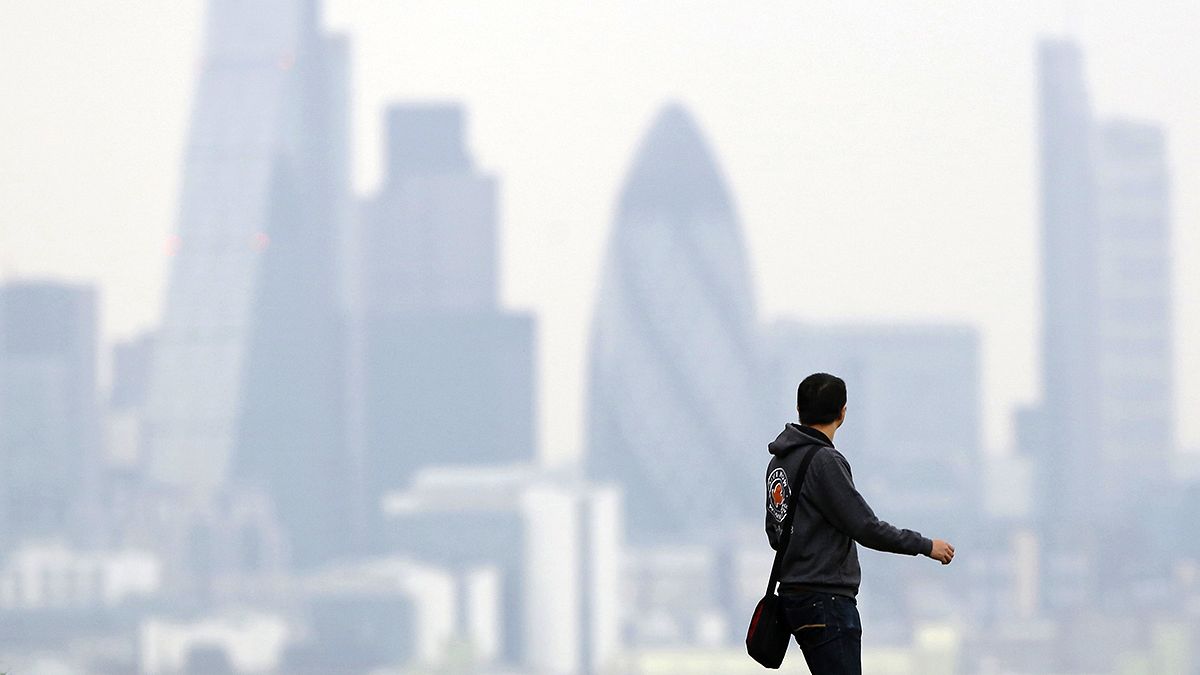Key decision are expected in June around EU-wide limits for air pollution.
Key decision are expected in June around EU-wide limits for air pollution.
Here we explain why air pollution is a problem and what’s on the table to tackle it.
What is the position with air pollution in the EU?
The World Health Organisation and environmental NGOs say it’s a major problem, causing an estimated 400,000 early EU deaths in 2010.
A report by the European Environment Agency claims up to a third of the bloc’s urban population is exposed to air pollution that exceeds EU limits.
What’s being done about it?
Stricter laws aimed at tackling air pollution in the European Union – officially referred to as the National Emission Ceilings Directive in Brussels talk – are currently on the negotiating table.
It comes after many EU states, including the United Kingdom, breached existing air pollution limits.
How will the new laws change things?
The legislation proposes adding two new pollutants not covered by existing laws: methane and fine particulate matter.
They will introduce new, post-2020 emission reduction commitments for these two pollutants, as well as sulphur dioxide, ammonia, nitrogen oxides and volatile organic compounds.
The aim is to align legislation with the EU’s climate change targets, which includes a commitment to reduce CO2 emissions by 40 percent by 2030.
Where do some of these pollutants come from?
Fine particulate matter, PM2.5 and PM10, are produced by engines and the burning of fuel. They are now considered more harmful to people’s health than originally thought – hence their introduction into this proposed legislation.
VCD, a German NGO, said in a report that around 56 percent of PM2.5 produced in Vienna came from road traffic.
Nitrogen oxides are also produced from the burning of fossil fuels. Like fine particulate matter, they are considered among the most worrying pollutants for human health.
A study last year found nearly 9,500 people die early each year in London due to exposure to nitrogen oxides and particulate matter – twice as many as previously thought.
It comes after Volkswagen admitted cheating emission tests around nitrogen oxide levels in its vehicles – meaning more pollutants were pumped into the air than previously thought.
Ammonia emissions come mainly from agriculture (90%), particularly from chemical fertilisers and manure, forming particulate matter.
Methane is a powerful greenhouse gas which is the precursor for ozone, a pollutant linked to respiratory problems and early death. Around 40 percent of EU methane emissions come from the agricultural sector
When will the new laws be decided upon?
The plans were introduced in 2013 and have so far passed via the European Parliament and environmental ministers from each EU state.
After talks involving key Brussels institutions on June 8, EU states’ environmental ministers will set out their positions publicly on the legislation on June 20.
It comes as the mayors of London and Paris have signed a joint letter urging their respective governments to back ambitious air pollution targets.
What do environmental NGOs say?
They are concerned the laws will be weakened.
The European Environment Bureau says Denmark, Romania, Poland, Italy, Spain, the UK and Bulgaria have been especially vocal in pushing for targets to be reduced.
It claims Germany and France, to help industrial farming, want to cut limits for ammonia, which, along with methane are major contributors to the most dangerous pollutants to human health, particulate matter and ozone.
Copa-Cogeca, which represents European farmers, has said EU decision makers must strike a balance between tackling air pollution and the viability of farming.
What are the key areas to be thrashed out?
The EEB says the European Council, which, in this case, will be made up of member states’ environment ministers, wants to reduce the overall ambition of the legislation, measured in terms of health improvements. The NGO says this would result in 16,000 premature deaths every year, according to European Commission data.
The European Parliament wants legally-binding air pollution limits set for 2025, rather than later, something which the Commission and Council opposes.
The Council also wants to omit methane from the legislation, something that the Parliament and Commission will try and resist.
EEB also says the Council wants to introduce ‘get-out-of-jail-free-cards’ for the legislation, which would allow member states to average out their emissions over three years, to allow for extreme weather conditions.
